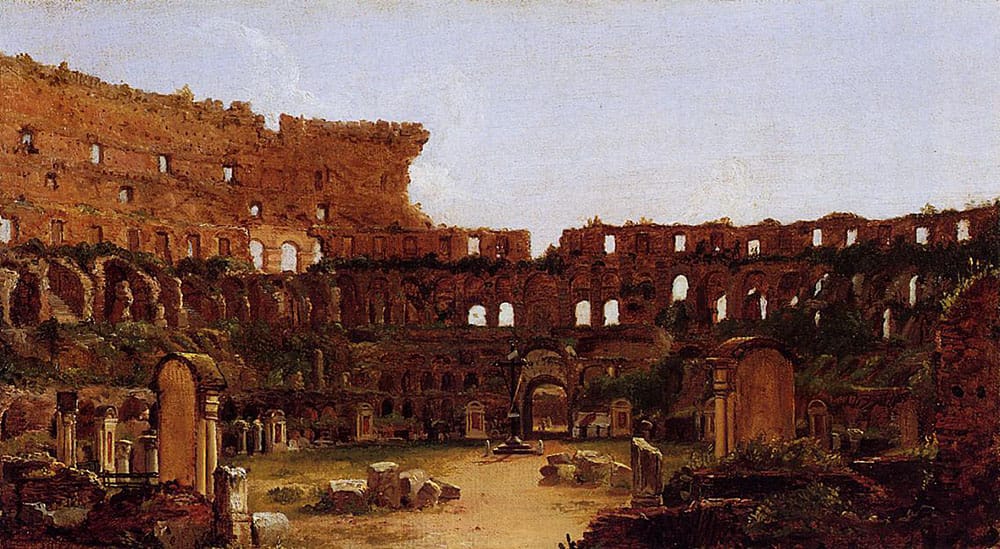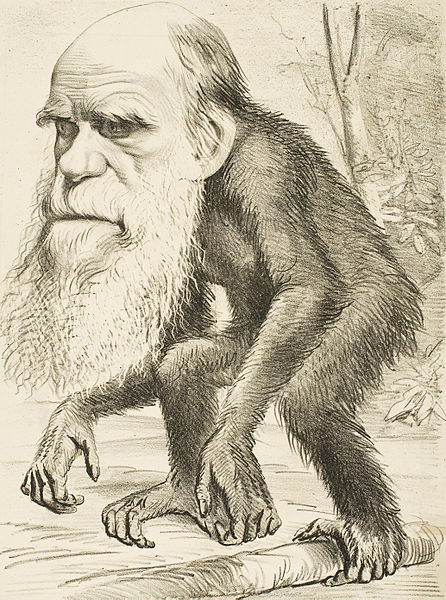The Invention of History - Darwin and Illegitimacy
Historical writing for most of the 19th century was about sorting out legitimacy and illegitimacy - which races were superior and which species would survive. Lessons were to be drawn from the past (ancient Rome), from the world (empire, colonies, slavery), and from nature (natural selection, evolution). Below is Thomas Cole's Interior of the Colosseum, Rome (1832).

Is history an invention? It is - when it is the story of human origins and the march of progress as told by Erasmus Darwin, William Godwin and Robert Owen, for example, in Britain. It is - when it is the story of the lack thereof, as told by Thomas Malthus (An Essay on the Principle of Population, 1798-1826) or Edward Gibbon (The History of the Decline and Fall of the Roman Empire, 1776–1789). Between these two poles (+/-), history as we understand it today was invented. Utopia versus The Fall. It was always a short step into fiction.
Yet few books can compare with the impact of Charles Darwin's On the Origin of Species by Means of Natural Selection, or the Preservation of Favoured Races in the Struggle for Life (1859). The full title is needed here because it implies that in this story those "favoured races" might include countries like Britain, and that they deserved to be so favoured because they were better adapted to their environment.
Of course Darwin wrote about races and illegitimacy in a botanical context - notably the sterility of certain "illegitimate" plants - not the evolution of the human races. But that was how it was popularly understood, whether he liked it or not (and he didn't), because it keyed into a lively debate already underway about how we all are descended from monkeys and apes, not just the inferior races. This idea had been popularized by Lord Monboddo and ridiculed in Thomas Love Peacock's satire Melicourt (1817), in which an orangutan called Sir Oran Haut-Ton stands for parliament. Then there was the controversial (but anonymous) Vestiges of the Natural History of Creation (1844). Such books called into question the legitimacy of humans as divinely inspired creatures and "legitimate" is a word that still pops up a lot in histories of Darwin and evolutionary theory.
After On the Origin of Species was published, Darwin remarked to a friend, "I must be a very bad explainer..." Perhaps he was, but it is in the nature of things for controversial ideas to be widely misunderstood and even hijacked, by Darwin's own cousin Francis Galton and by Richard Wagner for example, especially once they are propelled into the wider culture. Yet, in embracing Herbert Spencer's term "survival of the fittest" in 1869 he ended up reinforcing the unintended message of his nasty sub-title. Perhaps he realized this, for in 1872 the sub-title was dropped; the 6th edition became simply The Origin of Species.

Above is "A Venerable Orang-outang," a caricature of Darwin in The Hornet, a satirical magazine in 1871, after Darwin finally addressed these issues in The Descent of Man, published that year without much controversy.
